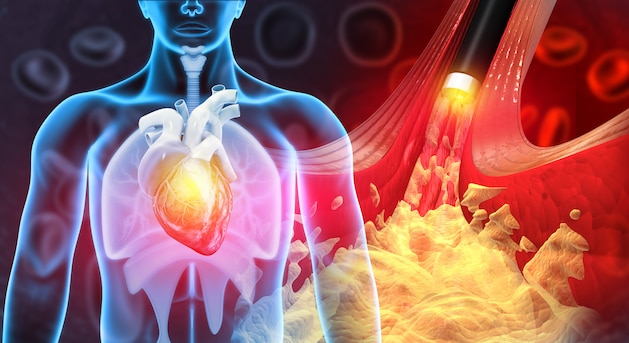Almost every third German has high blood pressure, according to the official figure. But as experts now warn, there are many more who do not know about their illness. Doctors are calling for measures to be taken to prevent it.
“Around one in five women and almost one in three men know nothing about their high blood pressure.” With these words, Lars Hecht from the Association of Diabetes Consulting and Training Professions in Germany (VDBD) now addresses the public in a message. The doctor warns that many people do not properly understand their risk of cardiovascular disease. For example, because they don’t know about their elevated blood pressure.
According to official figures, 20 to 30 million Germans suffer from it. They were diagnosed with elevated blood pressure. However, there are missing people who don’t know anything about it, emphasizes Hecht. And that is dangerous.
If high blood pressure is permanently elevated, it damages the blood vessels and puts strain on the organs. Approximately
And: With increased blood pressure, the risk of cardiovascular diseases and strokes also increases significantly. “Regular blood pressure checks are important in order to prevent life-threatening health problems,” advises Hecht. Because high blood pressure is often only diagnosed when the organs are already damaged.
High blood pressure is also called the “silent killer” because it only becomes noticeable so late. Around 300,000 people die every year from cardiovascular diseases, around half of them as a result of high blood pressure.
Risk groups in particular should have their values checked routinely. He names people
The guideline is that blood pressure should not exceed 140/90 mmHg. For people with diabetes, an even lower value of 130/80 mmHg applies. “About 90 percent of people with type 2 diabetes also have elevated blood pressure.”
Blood pressure is measured in millimeters of mercury (mmHg). Systolic blood pressure measures the pressure when the heart beats – when the heart muscle contracts and pumps blood into the vessels. Diastolic blood pressure measures the pressure on the vessels when the heart muscle relaxes – it is lower than systological blood pressure.
In order to lower blood pressure, lifestyle interventions make sense even before taking medication. Hecht names six measures.
In a guideline, doctors from the European Society of Hypertension once again point out the importance of a healthy diet, especially adequate potassium intake.
Potassium is essential for the body’s survival – every cell in our body needs the mineral. Without it, the heart, muscles and nervous system do not function properly.
Together with magnesium, potassium stabilizes our heart cells electrically, writes the German Heart Foundation. “This is important for the heartbeat. The pumping activity of the heart is essentially based on interactions between various electrically charged particles inside and outside the cells.”
The guidelines recommend consuming more than 3,000 milligrams of potassium per day. These should therefore primarily be consumed through food – “since a potassium intake of up to 3000 mg can be achieved through four to five portions of fruit and vegetables per day alone,” as the High Pressure League explains.
The following foods are suitable for this, for which the AOK health insurance company specifies values per 100 grams.
However, there is an important limitation, emphasize the experts from the Hypertension League: The recommendation for increased potassium intake does not apply to people with advanced chronic kidney disease.









